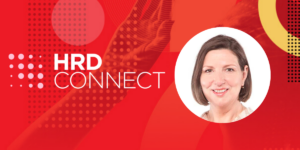Dave Ulrich on mental health imperatives for organisations and leaders
- 6 Min Read
HR thought leader Dave Ulrich outlines how leaders and organisations can address today’s most pressing mental health challenges.
- Author: Dave Ulrich
- Date published: Nov 9, 2021
- Categories
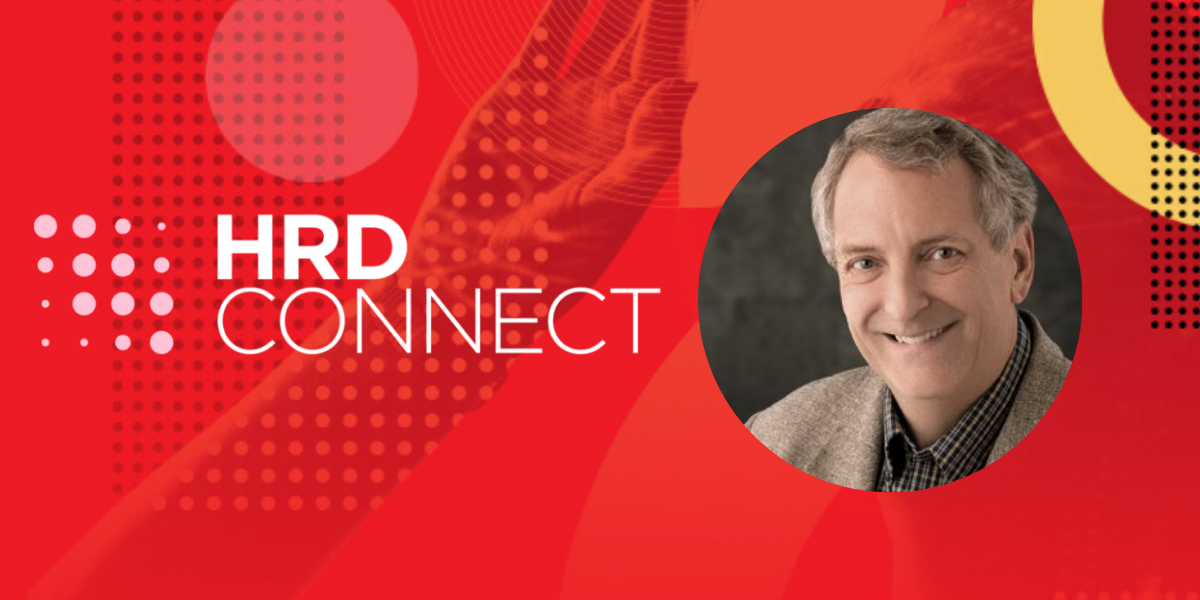
Millions have physically felt the impact of the COVID-19 pandemic (tragically over 5 million lives have been lost, with 250 million cases reported globally). Indeed, nearly all the eight billion people on earth have been affected by the mental health implications of not only the COVID-19 crisis, but also the crises of social injustice, economic turbulence, political polarisation, and technological revolution.
Mental health challenges affect personal well-being in the form of increasing rates of addictive behaviours, anxiety, conduct disorder, depression, dissociation, fear, hopelessness, loneliness, paranoia, pessimism, sadness, stress, and even suicide ideation. These challenges lead to a form of post-traumatic stress syndrome (PTSD) that we have called crisis response stress disorder (CRSD) that can be defined and assessed.
These mental health challenges show up in the work setting through increased talent mobility (with estimates of up to 50 percent of employees thinking of leaving their current job and 4.3 percent of the U.S. workforce actually leaving their jobs in the month of August alone (more than double average)—see great resignation challenges) and reduced positive employee experience. These employee experiences shape strategy realisation, customer experience, investor confidence, and social citizenship (see figure one).
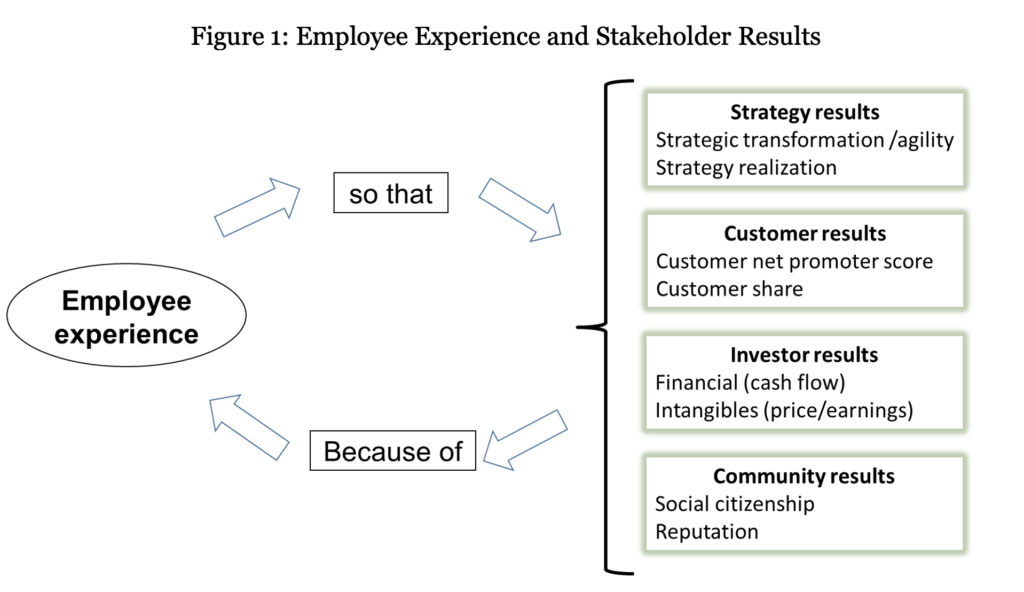
Under pressure, some rocks become dust and others diamonds. Positively managing mental health becomes a primary leadership and HR agenda to help employees use challenges to improve instead of crumble. So how can organisational and HR leaders positively respond to the pervasive mental health challenges of our day?
Acknowledge and attended to mental health challenges
Challenges can’t be resolved by ignoring, hiding, or running away from them. Destigmatise mental health concerns by talking about them and allowing employees to recognise, define, and face them. Discussions about employee primacy, well-being, productivity, and experience increasingly occur at all levels of an organisation, from the board to senior leaders to front line management and to support teams.
Be careful, however, to not go too far. Work is work: mental health or well-being is both a noble end in itself, but also a means to organisational outcomes. It is a paradox of both attending to mental health concerns and also making sure that the organisation succeeds in the marketplace. Navigating both compassion and competitiveness comes from recognising that without success in the marketplace the workplace does not exist. Helping employees connect their mental health to their customer success creates a virtuous cycle.
Upgrade health care/benefits
Colleagues like Jeffrey Pfeffer have wisely argued for broadening and deepening health care benefits to include not only physical but mental health. These benefits may include access to psychological resources both through referrals and on-site services but also flexible work hours and location, personal care services, and work/life policies.
Help leaders provide emotional support
Leaders at all levels attend to mental health issues by showing personal empathy and emotion that creates a sense of care and compassion in those they lead. Attentive leaders model health mental and well-being by being vulnerable and sharing their personal experiences, attending to the needs of individual employees, and being accessible.
For years, leaders were encouraged to practice Management By Wandering Around (MBWA); now in a technology-enabled world, leaders can practice Management By Checking In (MBCI). One leader schedules a 30-minute virtual connection with each employee every week where they talk about personal and not work-related issues.
Another leader begins meetings with a good news moment where employee share positive experiences in their personal and/or professional lives. Other leaders consistently ask employees personal questions: “How are you feeling? How can I be helpful to you?” Enabling leaders express appreciation and gratitude to affirm employees.
Support HR professionals
Many revere doctors, nurses, and medical staff who work tirelessly and selflessly to offer physical support. Society also honours first responders who run into fires, natural disasters, and harm’s way.
While each employee is ultimately personally accountable for his or her mental health, and while business leaders provide resources and model compassion, HR professionals are often front-line emotional caregivers. As emotional caregivers, HR professionals help employees find resources to cope with the personal demands they face.
Personalise the employee experience
The ultimate accountability for one’s mental health rests with each person. But each person is different. Personalising the employee experience means that less attention is given to where (home, remote, or headquarters office) and how (in person vs. virtual) people work and more attention to why people work and what they do.
We have summarised employee experience into three factors (see figure two).
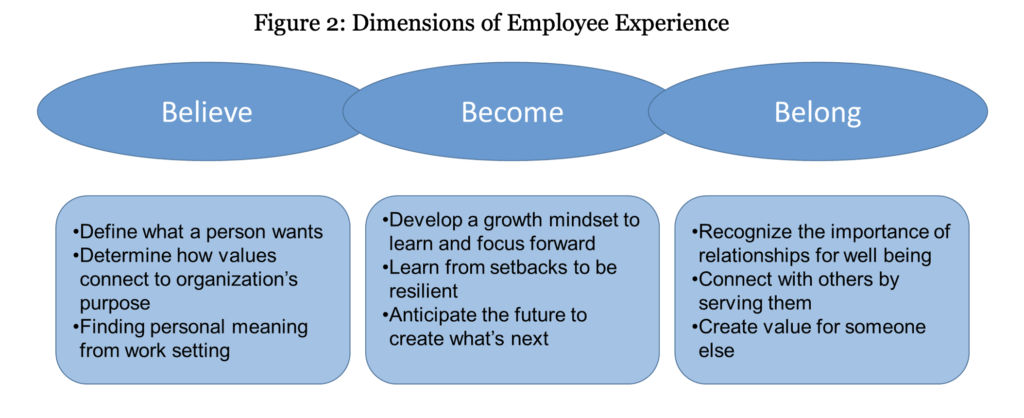
These three dimensions may vary by person over time. They include flexibility about time/schedule (hybrid work), location of work (on site vs. offsite), and amount of work (part time vs. full time).
When employees take personal ownership of their mental health, they are likely to have more positive outcomes. For example, some of the employee survey questions have shifted from, “How satisfied are you with your work conditions, supervision, compensation etc.?” to personal accountability, “To what extent do I do my best to improve my work conditions, relationship with my supervisor, and earn my compensation?”
By shifting primary responsibility from the organisation to the individual employee for mental health, employee primacy is primarily the employee’s responsibility.
Create the right culture
We have described four evolutionary waves of culture that characterise an organisation’s work environment (see figure three).
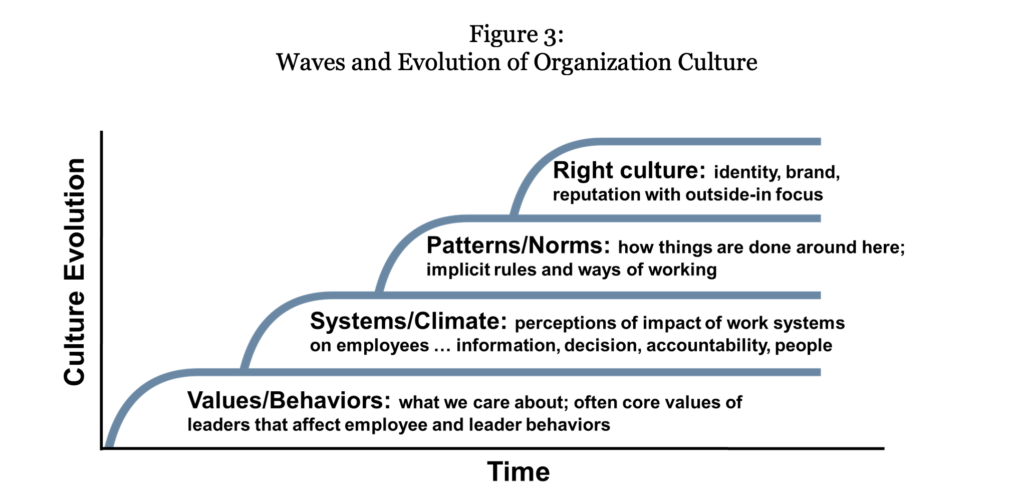
Mental health is shaped in each of the four waves. Values leading to behaviours ensures that leaders live the organisation’s values, which promotes mental health; systems ensure that the HR practices institutionalise and support mental health; patterns and norms set expectations for mental health; and the right culture focuses mental health on not only employees inside the organisation but people outside (customers, investors, community members).
We believe that the value of values occurs when promises to external stakeholders (brand) are made real to employees. In other words, a culture of mental health is not just for people inside the organisation but people in the broader ecosystem. When the right culture for mental health links internal actions and external identity, it is more likely sustainable. Individual mental health has a long-term affect when it is institutionalised in the culture.
Most likely, everyone reading this post has been affected by at least some mental health challenges. As business and HR leaders personally and organisationally deal with mental health realities, I hope we can each become stronger and more resilient.







